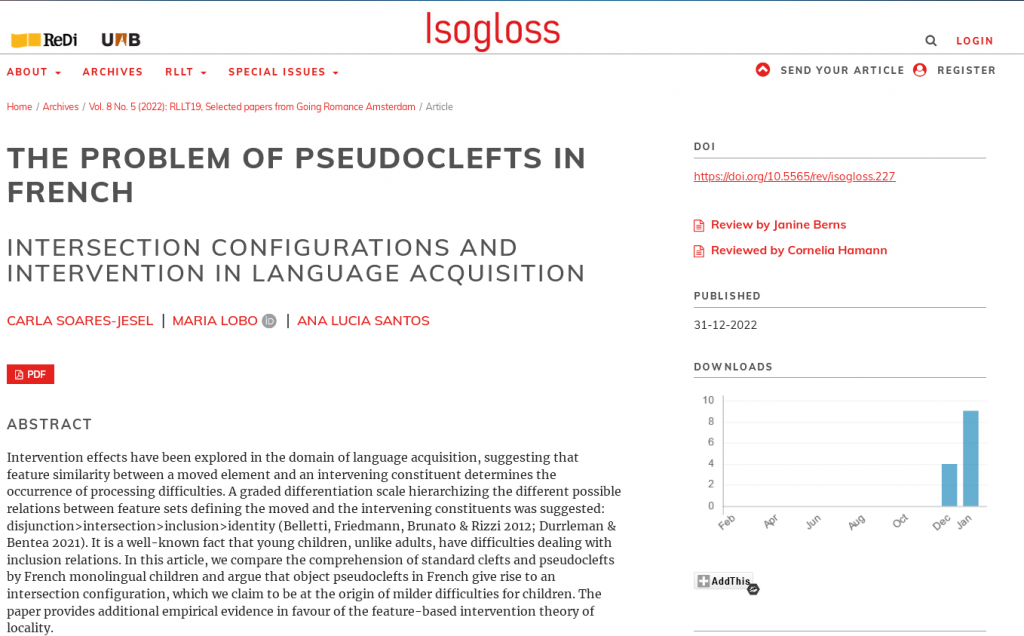New published work: “The problem of pseudoclefts in French”
Maria Lobo, researcher at the LiFE group of CLUNL, is co-author of the article “The problem of pseudoclefts in French: intersection configurations and intervention in language acquisition”, recently published by Isogloss, a prominent open access academic journal devoted to linguistics.
Abstract: “Intervention effects have been explored in the domain of language acquisition, suggesting that feature similarity between a moved element and an intervening constituent determines the occurrence of processing difficulties. A graded differentiation scale hierarchizing the different possible relations between feature sets defining the moved and the intervening constituents was suggested: disjunction>intersection>inclusion>identity (Belletti, Friedmann, Brunato & Rizzi 2012; Durrleman & Bentea 2021). It is a well-known fact that young children, unlike adults, have difficulties dealing with inclusion relations. In this article, we compare the comprehension of standard clefts and pseudoclefts by French monolingual children and argue that object pseudoclefts in French give rise to an intersection configuration, which we claim to be at the origin of milder difficulties for children. The paper provides additional empirical evidence in favour of the feature-based intervention theory of locality.”
The paper is available in Open Access at the following link:
https://doi.org/10.5565/rev/isogloss.227

- Soares-Jesel, Carla; Lobo, Maria; Santos, Ana Lúcia (2022). The problem of pseudoclefts in French: intersection configurations and intervention in language acquisition. Isogloss. Open Journal of Romance Linguistics, 8(5) [special issue: RLLT19, Selected papers from Going Romance Amsterdam], pp.1–22. ISSN 2385-4138. Available at: https://doi.org/10.5565/rev/isogloss.227
 PT
PT